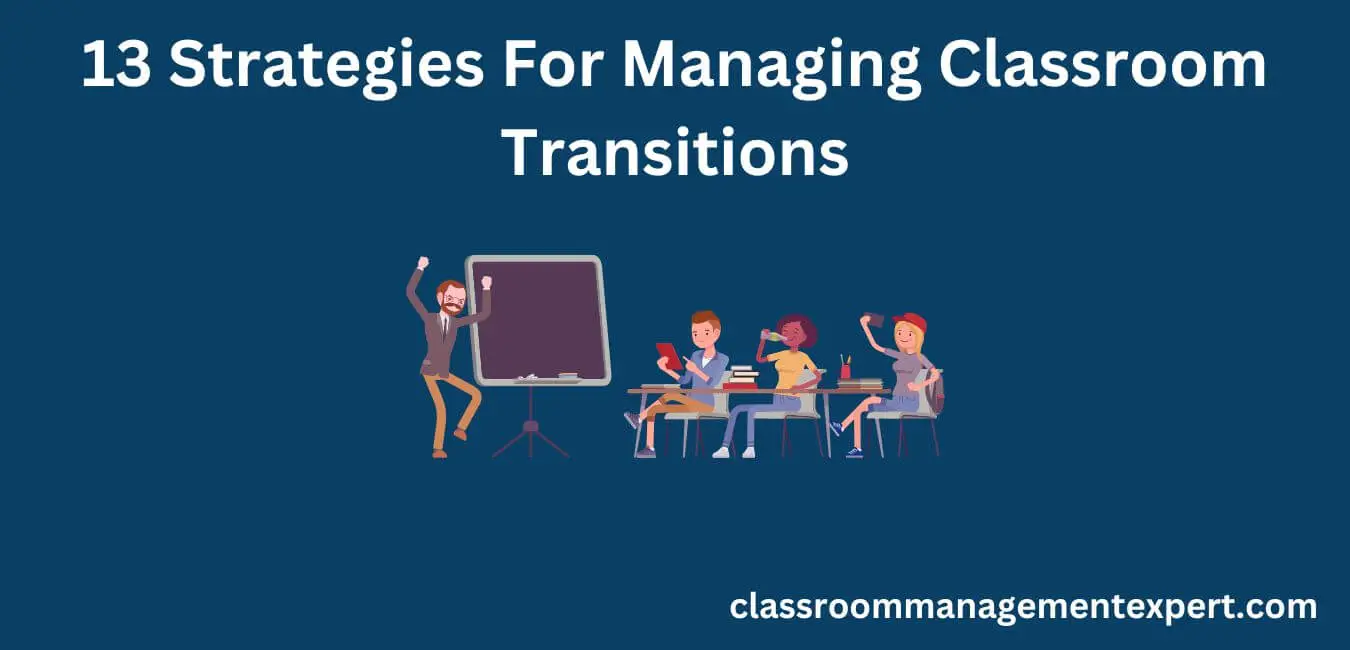Many teachers have dealt with angry parents in the past. Whether it’s a parent yelling at you or one who is being polite, it can be an uncomfortable situation to be in. However, there are ways to deal with these types of situations so that they don’t escalate and become more damaging for both parties involved.
This blog post will cover some tips on how to deal with angry parents and what sort of actions should be taken depending on the type of anger displayed by them. It will also touch on why we should help our students even when their parents may not want us to do so. Finally, we’ll discuss how we might feel about this topic as teachers ourselves and offer readers some encouragement along the way too!
What Can Make Parents Angry?
Have you ever thought about what makes parents angry? There are many reasons why parents become angry, but here are 20 things that can make them unhappy.
1. Not knowing, or not communicating, what is expected of the child.
2. The lack of professional behavior from the teacher.
3. Unforeseen issues with school equipment or personnel that are not resolved quickly by the teacher.
4. Threats to place pressure on teachers if they don’t give their children passing grades can cause parents to become angry with teachers.
5. Seeing their child suffer at school because of pressure from the teacher can make some parents very angry.
6. A perceived lack of respect on the part of a teacher towards students or their parents can cause anger in some people.
7. Teachers who are not responsive to parental criticism can make some parents angry.
8. Teachers who do not intervene when they see bullying can cause some parents to become angry with them.
9. Failure to communicate, or failure to follow through on promises of communication, is another way that teachers may make parents angry with them.
10. Teachers who are unsympathetic towards the needs of their students when they are sick can make parents angry with them.
11. The inability of teachers to properly monitor the behavior of students in the classroom can cause some parents to be angry with them.
12. Religious concerns, cultural differences, and other similar concerns may cause parents to feel that schools aren’t sensitive enough to their needs and will make some parents angry.
13. Teachers who don’t explain homework assignments and why they’re important can make some parents angry with them.
14. Parents may become angry if teachers do not take the time to speak to each child in a classroom individually or include all students in activities equally during class.
15. Teachers that use controversial techniques that are not part of the approved curriculum may cause some parents to become angry with them.
17. Parents can become angry when they discover that teachers are not as effective as they had been led to believe.
18. Teachers who don’t show any knowledge of a student’s academic strengths or weaknesses may make parents feel anger towards them.
19. Teachers who provide inaccurate information to parents can make them angry with the teacher.
20. Teachers who don’t treat all students in a classroom equally may also cause anger in some parents.
Why You Should Still Treat Students Fairly Even If Their Parents Are Angry with You?
Whether you are a new or experienced teacher, it can be very difficult to dismiss the upset of students’ parents. Maybe they have had a particularly difficult semester with their child, maybe something difficult has happened at home which is taking its toll on them in class. Whatever the reason, there will come a time where some angry parent(s) will come to you about their child.
When this happens, it is important that you still treat your student fairly even if their parents are angry with you. This will hopefully help the parents understand that you are trying your best to help their child succeed, and maybe they will take the next step towards reconciliation with their child. The following are ten reasons why it is important to treat your student fairly even if their parents are angry with you:
1. As mentioned before, some children might have particularly difficult semesters with anything from grades to social lives. It’s possible that the child has done all they can do and more, but they need a little bit of guidance or extra help. Even if their parent(s) are angry with you, it is important that you do not give up on them.
2. For many parents, their child is their pride and joy. They will be quick to defend them against any outside influence that they believe might bring harm to them or cause distress. If the student has been trying their best but something difficult has happened at home, it is important that you listen to what they have to say and be understanding.
3. Even if the child’s parents are angry with you, their student should not suffer because of this anger. If other students see their classmate being punished, there might be a rift between them and your class which could stay for years.
4. Even if the student’s parents are angry with you, it is important that you don’t take their anger out on your student. If this happens and is seen by other students or parents – again, there will be a rift between you and your class which could stay for years!
5. On occasion, students might not know their parents are angry with you. Unless the student knows, they might not understand why their grades have dropped or why they cannot play in the next game. If this happens, it is important that you try to reach out to the parent(s) and clear up any misunderstandings so your student can continue learning without any extra weight on their shoulders.
6. For a new or inexperienced teacher, it may be difficult to tell if the student’s parents are angry with you. If this is the case, it is important that you take all feelings into consideration and try your best. There might be a very good reason as to why they are unhappy – maybe their child has been struggling or if it’s a new teacher, you may just need to gain their trust.
7. No matter how angry your student’s parents are with you; it is important that you continue to treat your students fairly and, in the manner, expected in class. If you allow yourself to become sidetracked by anger towards others, this will be detrimental to both the parent(s) and your student.
8. Continuing to treat a student fairly after the parent(s) have been angry with you will help ease tensions between yourself and their parents. Try inviting them out for a coffee or tea, in the company of their child if possible, and clear up any misunderstandings. If they understand that you are trying your best for their child, they will hopefully allow the gap between themselves and their student to close.
9. It is very easy for parents to take out their anger with someone else on their child. While you shouldn’t act as a therapist or psychiatrist, it is important that if your student’s parent(s) are angry with you – before taking their anger out on their child – that you try to help them.
10. Students should not have to feel responsible for how angry other people are with someone else. It may be hard for you to control your feelings towards the parent(s), but it’s important that you don’t take those feelings out on the student, especially when they have done nothing wrong!
How To Handle Angry Parents?
Are you a teacher? Have you ever had an angry parent come to your door yelling at you about their child’s grades or behavior in your classroom? If so, this article is for you. If not, this article may help you empathize with teachers who have dealt with this kind of thing.
There are many different reasons why parents are angry at their children’s teachers.
20 Guidelines on How to Handle Angry Parents
1. Stay calm! Don’t get so flustered that you forget what to do.
2. Listen to them until they are finished with what they have to say, then calmly respond without being too defensive.
3. Point out that you are a teacher and not a doctor, lawyer, or mental health professional.
4. Refer to the school policy on talking to parents about their children’s grades.
5. If they show up at your door after hours or come late in the day when you have already left, ask them to contact the school administration about their concerns.
6. If they call during school hours, give them the name and number of your principal.
7. Try to keep them on-topic and away from other issues (suggest that you both take a break for some other activity like going for coffee or taking a walk).
8. Keep calm and refuse to get angry yourself. Try to empathize with their concerns.
9. Apologize if you have made a mistake, but don’t apologize for something that is not your fault.
10. Ask them what they think the consequences of their child’s actions should be.
11. Suggest that they talk with their child about what happened in order to find out what happened.
12. Suggest that they come to school for a conference with you and their child, the teacher, and the principal in order to discuss what happened.
13. Tell them about other students whose grades have improved after parent-teacher conferences.
14. Ask if your principal could contact them or meet with both of you together.
15. Let them know that you are willing to work with their child on specific things they need help with, but only if the parents will work closely with you too.
16. Suggest that they read the school’s policy on parent-teacher communication or talk to other parents about how it works at your school.
17. Make the conversation about their child’s academic needs and not just about your performance as a teacher.
18. Ask them if they would like you to set up regular conference time with them so that they can come in and discuss their child’s progress or professional development plan.
19. If all else fails, ask them if there is someone else you can contact for support.
20. Say goodbye and close the door!
Check out what you should never say to parents here.
Final Thoughts
If you’re a teacher, it’s important to know how to handle an angry parent. As I point out in this article, there are many reasons why parents may be made at their children’s teachers and some of them involve things that have nothing to do with your performance as a teacher. In order for any feelings on either side not to escalate further, it is best if both parties take a break from one another when needed or refer the issue back up into the school administration’s hands. It can also help if they talk about what happened together so that they understand where their child was coming from and how he/she could’ve handled the situation differently – but only after establishing guidelines beforehand. Make sure you stay calm during these talks too! Don’t get flustered and forget what you were talking about! While this article only contains 20 guidelines, make sure to take your time when stating any tips or advice. The parent may be in a panic too and might not hear everything you say – so slow down and read through your tips before explaining them all at once. Last but not least, remember to keep your door open during the conversation! It can be awkward or even creepy if you close yourself in with a random parent (even more so if they’re angry!). Your best bet is to remain as professional as possible and let them know that you’re more than willing to work on any issues together. Read more about classroom management here.
















